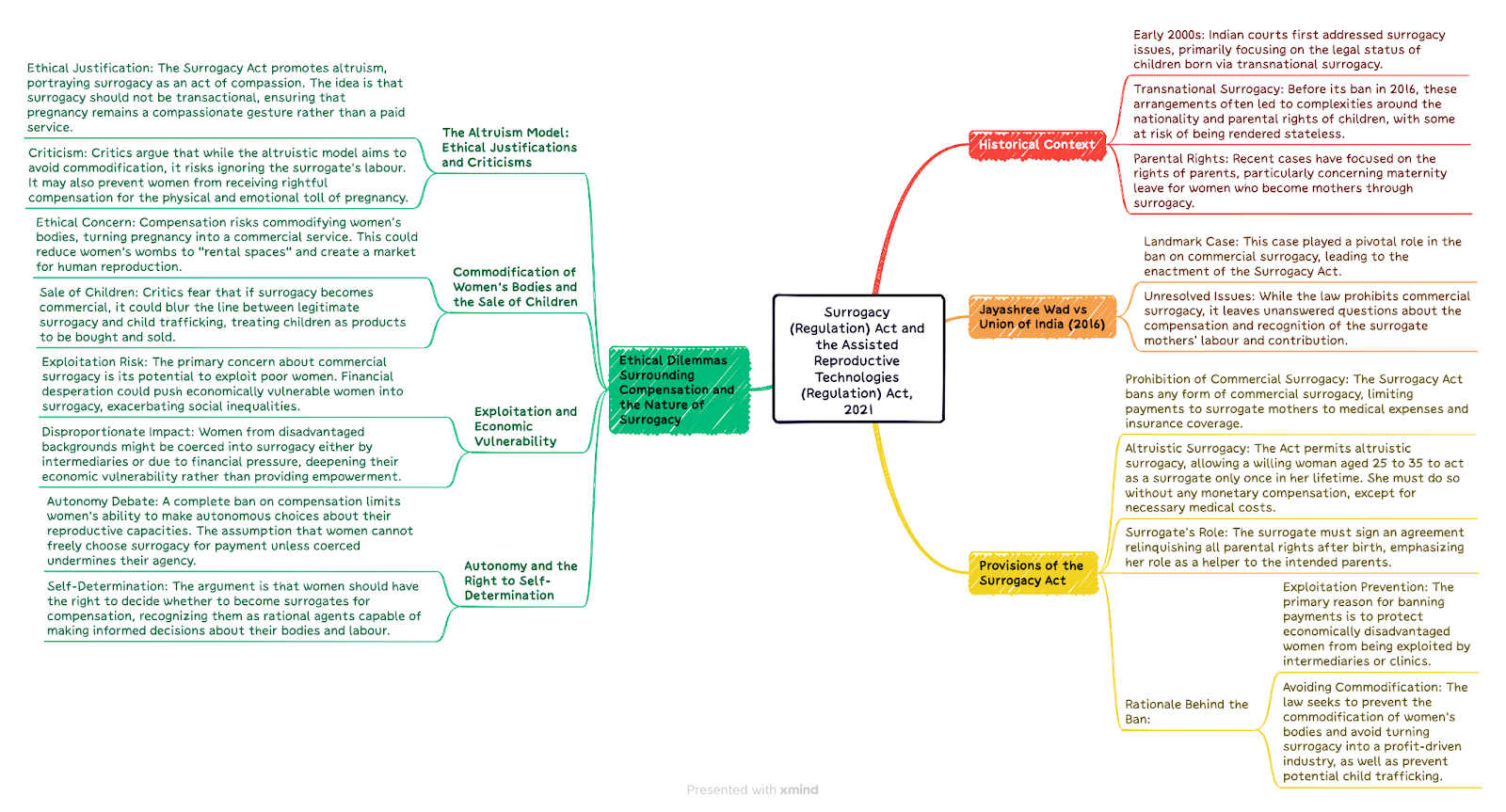Why Supreme Court Must Look into Compensation for Surrogates
Indian Express
Context
Since the enforcement of the Surrogacy (Regulation) Act and the Assisted Reproductive Technologies (Regulation) Act, 2021, several concerns have been flagged. Various provisions are currently being challenged in the Supreme Court regarding their constitutional validity.

Parliamentary Committee Recommendation on Compensation
102nd Report Observation
- The Rajya Sabha’s Parliamentary Standing Committee, during its review of the 2016 Surrogacy Bill, highlighted that pregnancy significantly impacts a woman’s health, time, and family.
- It observed that while doctors, lawyers, and hospitals receive payment for their services in surrogacy, surrogate mothers are expected to offer their services altruistically.
Recommendation for Compensation
- The committee recommended that surrogate mothers should receive reasonable compensation beyond just medical expenses and insurance, recognizing their labor while balancing the need to prevent exploitation.
Challenges of Implementation
1. Underground Surrogacy Markets
- Following the transition to an altruistic surrogacy model, reports have surfaced regarding surrogacy arrangements going underground.
- Illegal surrogacy rackets are exploiting women in unregulated environments, circumventing the established legal framework.
2. Difficulty Finding Surrogates
- Many couples seeking surrogacy under the altruistic model are facing challenges in finding women willing to act as surrogates without any form of compensation, highlighting the practical difficulties in enforcing this legal structure.
Need for Reconsideration
- These challenges suggest a need to re-evaluate the prohibition on compensation. The current framework fails to address the demand for surrogacy and the associated risks of an unregulated market.
Conclusion
While legislative intervention has highlighted these crucial issues, it remains to be seen whether the Supreme Court will consider the question of fairness in compensation as separate from the narrow logic behind prohibition.